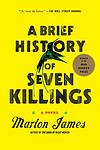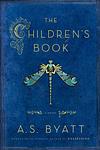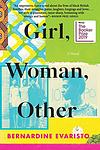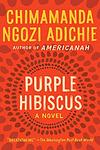The Greatest "Fiction, Social & Cultural Fiction" Books Since 2000
Click to learn how this list is calculated.
This list represents a comprehensive and trusted collection of the greatest books. Developed through a specialized algorithm, it brings together 300 'best of' book lists to form a definitive guide to the world's most acclaimed books. For those interested in how these books are chosen, additional details can be found on the rankings page.
Genres
Social & Cultural Fiction is a literary category that encompasses novels and stories that delve into the complexities of society and culture, exploring themes such as class, race, gender, and identity within specific social contexts. These narratives often provide a lens through which readers can examine the intricacies of human relationships and the impact of cultural norms and societal structures on individuals and communities. By offering a fictional yet reflective portrayal of real-world social dynamics, this genre invites readers to gain a deeper understanding of the diverse experiences that shape our world. Authors in this category frequently use their characters and settings to comment on contemporary issues, challenge prevailing ideologies, and provoke thought about the possibility of social change, making Social & Cultural Fiction a powerful tool for empathy and a mirror for the ever-evolving human condition.
Countries
Date Range
Reading Statistics
Click the button below to see how many of these books you've read!
Download
If you're interested in downloading this list as a CSV file for use in a spreadsheet application, you can easily do so by clicking the button below. Please note that to ensure a manageable file size and faster download, the CSV will include details for only the first 500 books.
Download-
26. A Brief History of Seven Killings by Marlon James
"A Brief History of Seven Killings" is a multi-voiced novel that explores the attempted assassination of a world-famous reggae singer and its aftermath. The narrative spans decades, starting from the turbulent 1970s in Jamaica through the crack wars in 1980s New York to the changing world of the 1990s. The story is told from the perspectives of various characters, including gangsters, journalists, and CIA agents, providing a complex and gritty insight into the violent underbelly of Jamaican politics and the far-reaching influence of the drug trade.
-
27. Sing, Unburied, Sing by Jesmyn Ward
The novel explores the journey of a 13-year-old boy, his drug-addicted mother, and his baby sister as they travel through Mississippi to pick up their white father from the state penitentiary. The story is steeped in the harsh realities of poverty, racism, and struggle, and is further complicated by the presence of a ghost from the family's past. It's a haunting tale about the legacy of trauma and the power of family ties.
-
28. Suite Française by Irène Némirovsky
"Suite Française" is a two-part novel set during the early years of World War II in France. The first part, "Storm in June," follows a group of Parisians as they flee the Nazi invasion. The second part, "Dolce," shows life in a small French village under German occupation. The novel explores themes of love, loss, and survival, and provides a unique perspective on life in France during the war. The book was written during the war but was not discovered and published until many years later.
-
29. What Is the What by Dave Eggers
The novel is a fictionalized account of a real-life Sudanese refugee, Valentino Achak Deng, who was forced to flee from his village during the Second Sudanese Civil War. The story follows his harrowing journey as a child through Ethiopia and Kenya, his life in various refugee camps, and his eventual resettlement in the United States. The book explores themes of survival, identity, and the power of storytelling, while shedding light on the tragic history and ongoing humanitarian crisis in Sudan.
-
30. Freedom: A Novel by Jonathan Franzen
This novel is a multi-generational saga that explores the lives of the Berglund family. It delves into their personal struggles and relationships, and how they navigate through the complexities of life in contemporary America. The narrative explores themes of freedom in various forms, including personal freedom, societal freedom, and the freedom of choice. The book also examines the impact of these choices on the family’s dynamics, their relationships, and their identities.
-
31. A Thousand Splendid Suns by Khaled Hosseini
This novel explores the lives of two Afghan women, Mariam and Laila, who are brought together by war and fate. Mariam, an illegitimate child, suffers from the stigma surrounding her birth and the abuse she faces from her bitter mother. When she is married off to Rasheed, her life becomes a nightmare. Later, she becomes a co-wife to Laila, a beautiful and educated girl who also ends up as Rasheed's wife due to a series of tragic events. Despite their initial rivalry, the two women form a bond and become sources of support for each other in the face of their husband's brutalities and the war-torn world of Kabul.
-
32. Normal People by Sally Rooney
"Normal People" is a novel that explores the complex relationship between two high school students from different social classes in a small town in Ireland. Despite their contrasting backgrounds, they form a strong bond that continues into their university years at Trinity College. The narrative follows their journey, filled with misunderstandings, miscommunications, and emotional intimacy, as they navigate their way through love, friendship, mental health issues, and the struggles of growing up.
-
33. Homegoing by Yaa Gyasi
This epic novel traces the lineage of two half-sisters from 18th century Ghana to present day America. One sister is sold into slavery and shipped to America, while the other is married off to a British slaver and remains in Africa. The book follows their descendants through the generations, exploring the lasting impact of slavery and colonialism on Black lives. The narrative showcases the struggles, resilience, and triumphs of each generation, providing a deep and personal view into the historical events and societal changes that shaped their lives.
-
34. The Help by Kathryn Stockett
Set in the early 1960s in Jackson, Mississippi, the story revolves around three main characters: two black maids and a young white woman. The maids, who have spent their lives taking care of white families and raising their children, agree to share their experiences with the young woman, who is an aspiring writer. The book offers a poignant and humorous look at the complex relationships between these women, while also exploring the racial tensions and social changes of the era.
-
35. The Buddha in the Attic by Julie Otsuka
"The Buddha in the Attic" is a historical novel that tells the story of Japanese picture brides migrating to America in the early 20th century. It follows their journey from their traditional homes in Japan to their new lives in California, their struggles with language barriers, cultural differences, and harsh working conditions. The book also explores their experiences during World War II when they and their American-born children were taken to internment camps. The narrative is presented in a collective first-person voice, providing a chorus of the women's viewpoints.
-
36. Mother's Milk by Edward St Aubyn
The novel follows the life of Patrick Melrose, a man battling with his drug addiction and his troubled relationship with his parents. Patrick tries to come to terms with his mother’s decision to leave her estate to a New Age foundation rather than to him, her only son. The story delves into the complexities of inheritance, parenthood, and the lasting impact of childhood trauma. The narrative shifts between the perspectives of Patrick, his wife, and their two young sons, providing a multi-dimensional view of the family's struggles.
-
37. The Round House by Louise Erdrich
A teenage boy navigates the complexities of life after his mother is brutally attacked on their reservation in North Dakota. As the legal system fails to bring justice due to jurisdictional issues, the boy takes matters into his own hands. The novel explores themes of tribal law, justice, and the transition into adulthood, all set against the backdrop of Native American culture and history.
-
38. The Children's Book by A. S. Byatt
"The Children's Book" is a historical novel that explores the lives of several families, primarily the Wellwoods, from the end of the Victorian era through World War I. The story delves into the complex relationships between parents and children, the influence of storytelling, and the impact of political and social changes on personal lives. It also portrays the struggles of women's suffrage, socialism, and the arts and crafts movement. The narrative is intricately woven with fairy tales and myths, reflecting the characters' inner lives and the era's cultural milieu.
-
39. The Inheritance of Loss by Kiran Desai
This novel explores themes of love, loss, and the human struggle for identity amidst political unrest. Set in India during the Nepalese movement for an independent state, the narrative follows the lives of a retired judge living in the Himalayas, his granddaughter, and his cook. As the political situation worsens, each character must grapple with their own personal issues, including the judge's regret over his failed marriage and his granddaughter's struggle to find her place in the world. The cook, meanwhile, dreams of a better life for his son in the United States. The narrative weaves together these individual stories to create a poignant tapestry of human resilience in the face of adversity.
-
40. Bartleby & Co by Enrique Vila-Matas
"Bartleby & Co" is a metafictional work that explores the theme of "writers of the No," authors who cease to write or never start at all. The narrator, an office worker on sick leave, uses footnotes to a nonexistent text to delve into the stories of these authors, including famous real-life figures. The book serves as a meditation on silence, refusal, and the nature of literature itself.
-
41. Let the Great World Spin: A Novel by Colum McCann
Set in 1970s New York City, the novel weaves together the stories of a diverse group of characters, ranging from a young Irish monk living among prostitutes in the Bronx to a group of wealthy Park Avenue ladies planning a charity event. Their lives intersect in unexpected ways against the backdrop of a tightrope walker's daring feat between the Twin Towers. The narrative explores themes of love, loss, and the interconnectedness of humanity.
-
42. Brooklyn by Colm Tóibín
The novel tells the story of a young Irish woman, Eilis Lacey, in the 1950s who, unable to find work at home, is sent to Brooklyn by a helpful priest where she builds a new life. She finds work, studies to become a bookkeeper, and falls in love with an Italian plumber named Tony. However, a family tragedy forces her to return to Ireland, where she must choose between her new life in America and her old life at home.
-
43. Under the Skin by Michel Faber
"Under the Skin" is a novel that follows the story of a woman named Isserley who picks up male hitchhikers in Scotland. However, Isserley is not what she seems - she's actually an alien sent from another planet to capture unsuspecting men, who are then sent back to her home planet to be used as meat. The book explores themes of humanity, morality, and the ethics of the meat industry.
-
44. Runaway by Alice Munro
"Runaway" is a collection of short stories that explore the depth of human relationships, the complexities of love, and the consequences of life's unpredictable turns. The stories revolve around women of varying ages and circumstances, each dealing with her own unique situation. Some are escaping from their past or present situations, while others are struggling to find their place in the world. The narratives delve into themes like betrayal, loss, and the often complicated dynamics between parents and children, and husbands and wives.
-
45. The Vegetarian: A Novel by Han Kang
This novel tells the story of Yeong-hye, a dutiful Korean wife who, after having a disturbing dream, becomes a vegetarian, a decision that disrupts her marriage and sets into motion an increasingly grotesque chain of events at home. As her rebellion manifests in ever more bizarre and frightening forms, Yeong-hye spirals further and further into her fantasies of abandoning her fleshly prison and becoming - impossibly, ecstatically - a tree. The book is a darkly allegorical, Kafkaesque tale of power, obsession, and one woman’s struggle to break free from the violence both without and within her.
-
46. There There by Tommy Orange
"There There" by Tommy Orange is a powerful and poignant novel that follows the lives of twelve Native American characters living in Oakland, California. As their stories intertwine and converge, the novel explores themes of identity, community, and the effects of historical trauma on Native American people. Through vivid and lyrical prose, Orange gives voice to a group of individuals who have long been marginalized and overlooked in American society, creating a compelling and unforgettable portrait of contemporary Native American life.
-
47. Girl, Woman, Other by Bernardine Evaristo
The novel is a vibrant portrayal of the lives of twelve different characters, primarily black British women, spanning over a century. Each character has their own unique story, tackling issues such as feminism, politics, sexuality, and identity. The narrative is a blend of poetry and prose, exploring the interconnected lives of these women and their personal struggles and triumphs. It is a powerful exploration of race, gender, and the changing face of Britain.
-
48. Purple Hibiscus by Chimamanda Ngozi Adichie
"Purple Hibiscus" follows the story of a 15-year-old Nigerian girl, Kambili, and her older brother Jaja, who live a privileged life in Enugu. However, their father is a religious fanatic and a domestic tyrant. The siblings are sent to their Aunty Ifeoma's home, a university professor, who provides them a taste of freedom and shows them a different way of life outside their father's oppressive rule. The novel explores themes of colonialism, religious fanaticism, and the post-colonial political situation in Nigeria.
-
49. The Gathering by Anne Enright
"The Gathering" is a powerful and evocative family saga set in Ireland, exploring the complex dynamics of a large Irish family following the suicide of one of the siblings. The story is narrated by Veronica, the sister of the deceased, who delves into her family's past, uncovering a traumatic event that has shaped their lives. The narrative is a mix of present events, childhood memories, and imagined scenarios, all of which contribute to a profound exploration of memory, truth, and the bonds of family.
-
50. The Neapolitan Novels by Elena Ferrante
"The Neapolitan Novels" is a four-part series that explores the intricate and lifelong friendship between two women from Naples, Italy. The series spans several decades, beginning in the 1950s, and provides a detailed examination of the women's lives, struggles, and the societal pressures they face. The narrative delves into themes of identity, friendship, love, violence, and socio-political changes in post-war Italy. The series is known for its rich character development and vivid portrayal of female friendship.
Reading Statistics
Click the button below to see how many of these books you've read!
Download
If you're interested in downloading this list as a CSV file for use in a spreadsheet application, you can easily do so by clicking the button below. Please note that to ensure a manageable file size and faster download, the CSV will include details for only the first 500 books.
Download























